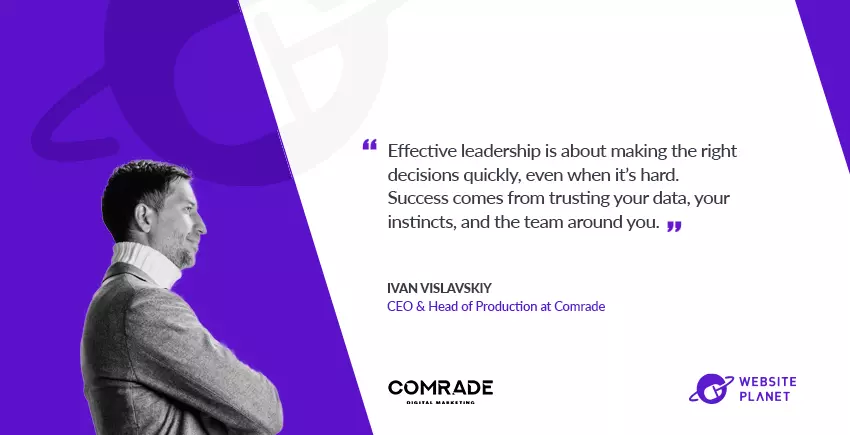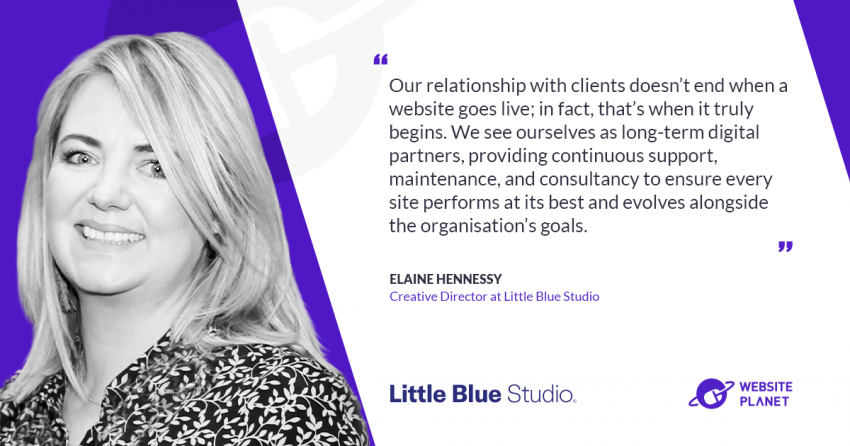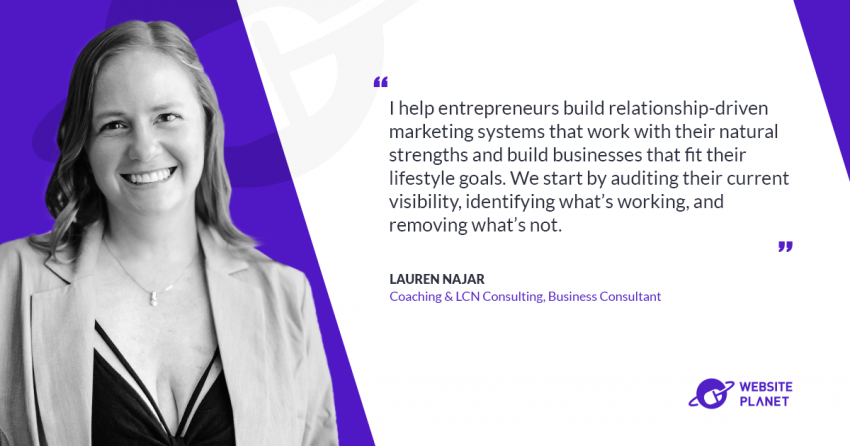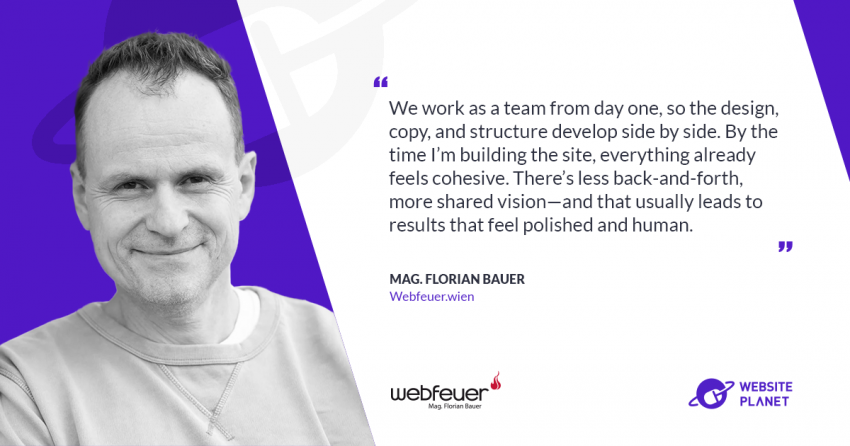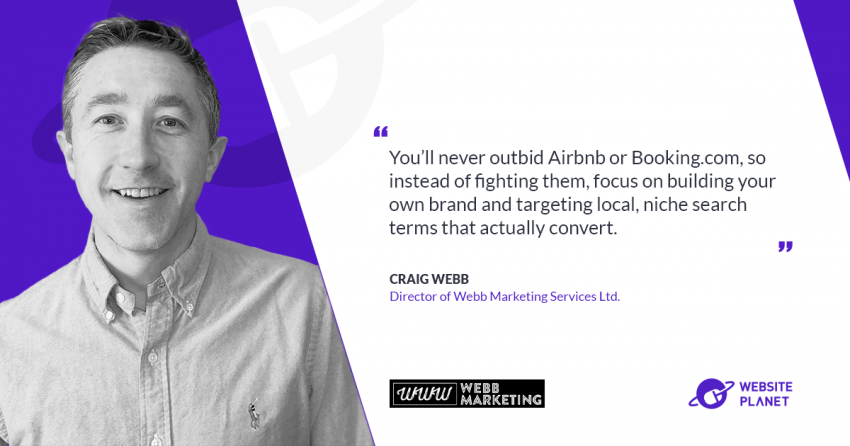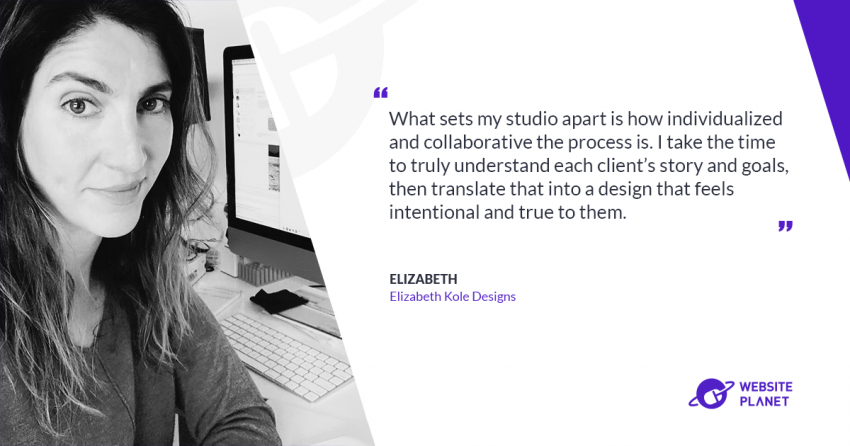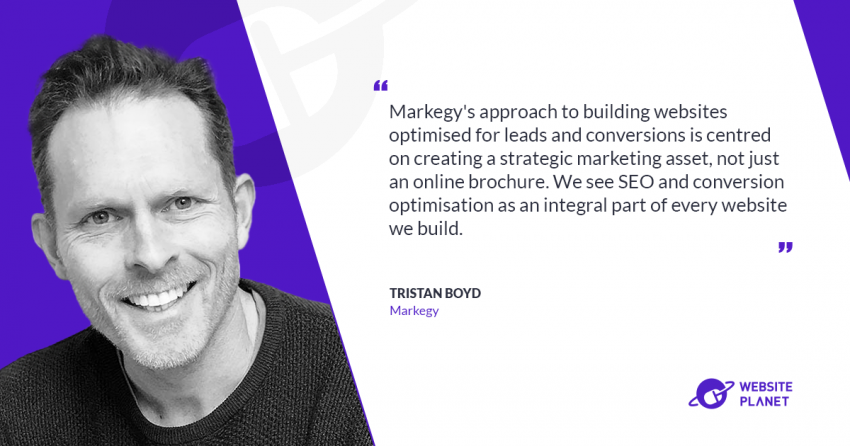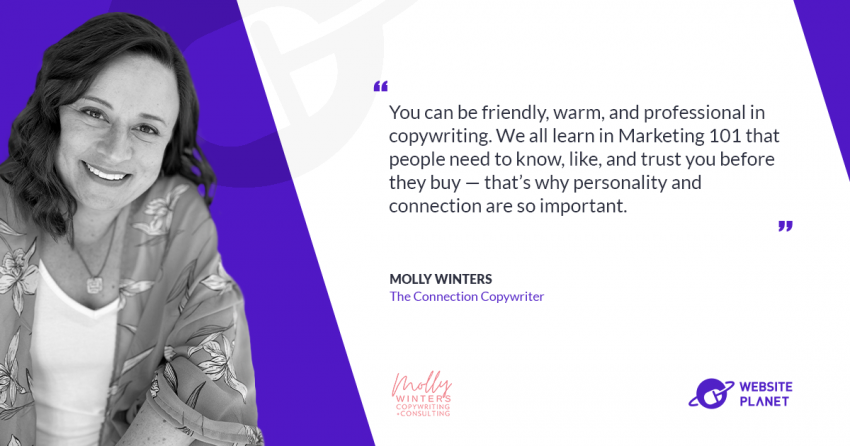There’s no better way to go beyond the same marketing basics regurgitated all over the net than hearing from those who’ve been in the trenches for decades. In this interview series by Website Planet, I talk with successful marketers to learn what strategies, tools, and channels are working for them right now, and which ones are dead.
Ivan Vislavskiy is the CEO and Co-founder of Comrade, a full-service digital marketing firm based in Chicago. His journey into the digital marketing world began when he was only 16, and he created his first website for a restaurant owner in Russia.
Comrade has a proven history of results, including first-page Google rankings within 2-5 months, and a 10x increase in PPC revenue for a portfolio of over 300 projects. It’s recognized as one of Chicago’s top digital marketing agencies and among Inc. 5000 fastest-growing companies in the U.S.
Read to learn more about:
- The 4 principles of effective marketing
- How AI saved them over a thousand hours annually
- Comrade’s secret easy win for lead generation
To start, can you share a bit about your background? What career achievements and results are you most proud of?
I’m a seasoned executive with a background in production and business operations. I co-founded our agency with my business partners, growing it to a team of about 70 full-time employees. It’s been an amazing journey, and I’m proud of how far we’ve come.
Rather than focus on personal achievements, I prefer to highlight our team’s successes. We’ve made the Inc. 5000 list of fastest-growing companies in the U.S. and won several awards for search, creativity, and marketing performance. It’s honestly a team effort.
On a personal level, what I’m most proud of is my continuous growth as the company has scaled. I’ve evolved from juggling multiple roles—creative, operations, and even bookkeeping—to managing people and departments, and now leading strategically. With the rise of AI and new technologies, I’m excited to continue pushing myself in these areas. It’s an exciting time to be in marketing and tech, and I’m always looking for new ways to lead the agency into the future.
What strengths, skills, or personal traits helped you reach these results? How can others build these levers?
I’d attribute my journey to two key traits: curiosity and perseverance:
- Curiosity has driven me to constantly learn, adapt, and dive into new things—whether it’s marketing trends, technology, or business operations.
- Perseverance has been just as crucial. Building a business is tough, but the ability to stay focused and push through challenges has helped me achieve long-term success.
For others, I’d say embrace curiosity by always seeking to learn and try new things. As for perseverance, it’s about grit—sticking with your vision even when things get hard. Both are essential for growth, whether in business or personal development.
Which ones are you trying to learn or refine right now? What made you realize their importance?
The ability to make strategic decisions—and doing so quickly. As an executive, the decisions I make can pivot the entire direction of the company. Sometimes those choices might seem counterintuitive to some team members, but they’re always aimed at scaling the business and taking it to the next level.
Speed is also crucial. Sometimes I’m personally invested in certain people, processes, or ideas, and this can make decisions harder. But to be an effective leader, you have to act fast, relying on the data you have at that moment. Delaying decisions due to emotional attachment can hinder progress.
I’ve learned the importance of balancing speed with informed judgment, and I constantly consult with advisors to ensure I get a second opinion and see all angles before moving forward. This is an experience-driven skill I’ve worked hard on and am continually sharpening because of its critical role in driving the business forward.
What are your top-performing marketing strategies right now? What measurable results did you see? Great if you could share an example for each.
As a digital marketing agency with 15 years of experience, we’ve naturally focused on what we do best for our own marketing—SEO, PPC, content marketing, and social media. Out of all these channels, SEO has clearly been our top performer.
Most of our new clients come in through organic search, and we’re now generating about 45+ qualified leads a month from SEO alone. Since we’ve been optimizing our own site for years, we rank really well for our target keywords (most in Top-5 results). However, we’ve kind of hit a ceiling with SEO, as it’s hard to scale beyond a certain point once you’re already dominating the rankings.
We’ve also experimented with PPC, and while it can bring in leads, the cost of client acquisition has been noticeably higher compared to SEO. So, we needed to find another way to scale our lead generation without the costs spiraling. That’s when we turned to outbound marketing.
Initially, we went down the traditional route—building lists, making cold calls, sending emails—but like many, we found that approach didn’t yield great results. Let’s face it, people are bombarded with cold outreach all the time, and it’s easy for your message to get lost in the noise. That’s when one of our advisors, a former CMO of a large agency, introduced us to a gift-based outbound strategy.
Gift-based outbound is a simple yet brilliant strategy: instead of hitting prospects with a cold call, we start by sending them a thoughtful gift. In our case, we began sending high-quality cookie baskets (because who doesn’t love great cookies?), and followed up by asking, “Did you receive our gift?”. This little tweak has made a huge difference.
After that initial touchpoint, we follow up with a sequence of emails, calls, and valuable newsletter pieces. If we still don’t hear from them within six months, we restart the cycle with another gift and a fresh round of outreach. While we don’t have full campaign stats yet, after just two rounds, we’ve secured 13 qualified meetings, which led to two new clients and two more deals in the pipeline. The best part is that this approach is scalable—we could easily 5x-10x the outreach with a bigger team.
On the flip side, which ones have you tried unsuccessfully? Is there a lesson you learned from the experience?
As marketers, we’re always testing different strategies. And sure, sometimes the results aren’t what we hoped for, but that’s part of the process—if it were easy, everyone would be doing it, right?
One strategy that didn’t work for us initially was a straightforward outreach program. Internally, we were skeptical about its potential from the start, but since a lot of agencies in our space use it to consistently win new business, we figured we had to give it a shot. What we didn’t realize at the time was that if you come in with a basic outreach sequence, prospects just aren’t going to bite—they hear the same pitches over and over, every single day.
We learned that with a little creativity and personalization, you can turn a strategy that’s underperforming into a winner. That failed outreach program led us to the gift-based approach I mentioned earlier, and it made all the difference. The key takeaway for us was to always evaluate the performance of every tactic and ask ourselves why it’s not getting traction. If we can’t pinpoint the reason, that’s when we bring in outside specialists.
What are your must-have tools for online marketing, and what do you particularly like about each of them?
There are a few external tools we rely on heavily to keep everything running smoothly and efficiently:
- Google Analytics – It’s a no-brainer for tracking website performance. What I love about it is the depth of insights you can get. From traffic sources to user behavior, it helps us fine-tune our strategies and really understand what’s working and what’s not.
- SEMrush – For SEO and competitive analysis, SEMrush is the move. It helps us keep an eye on keyword rankings, spot opportunities, and stay ahead of competitors.
- HubSpot – We use HubSpot for managing our inbound marketing and CRM. It’s great for automating workflows, managing email campaigns, and keeping track of our customer relationships in one place. What I like most is the way it integrates with everything else and keeps all the pieces of our marketing puzzle connected.
- Zapier – Zapier is a tool we use to automate repetitive tasks and integrate different tools and platforms. It’s like the glue that holds a lot of our workflows together. I love that we can set up complex automation with very limited development help.
- Google Data Studio – When it comes to working with data and reporting, Google Data Studio is a go-to. It allows us to create customized, visually appealing reports from various data sources, which makes it much easier to share insights with clients and make informed decisions internally.
- ClickUp – For project management, we rely on ClickUp to keep everything organized and moving forward. It’s flexible enough to handle both small tasks and large projects, and its integrations with tools like Slack help keep communication and workflows seamless across the team.
These external tools help our marketing team be more efficient, make data-driven decisions, and ultimately improve results. On top of that, we’ve built an internal suite of tools to automate processes and leverage data for even better efficiency and client retention.
One must-have internal tool for us is our AI-based lead qualification system. It collects all the conversions from our clients’ websites, whether they’re coming through forms, chat solutions, or calls. Our job is to validate whether a submission (like a form or a call) is a legitimate lead. Initially, we did this manually, but with over 120 clients, the process became labor-intensive.
So, we developed an AI tool to automate lead qualification. The AI reviews transcripts from submissions and automatically determines whether the lead is qualified. The results have been incredible—the AI qualifies leads with 80% accuracy, consistently. This tool alone has saved us over a thousand hours annually, and it’s been a game changer for improving efficiency and ensuring we’re focusing on the right leads.
If I asked you to share the key ingredient in your ‘secret marketing sauce’, what would it be? What makes it so effective?
I don’t think we have a ‘secret sauce’ that no one knows about. As a digital marketing agency, we play by the same rules as everyone else—using similar tools and techniques. But what truly makes our campaigns consistently successful comes down to these key principles:
- Deep Vertical Specialization – After being a generalist agency for about 11 years, one of our mentors convinced us that to truly scale, we needed to focus on specific niches. So, we chose local service providers—legal, home services, and healthcare—as our focus areas. This deep vertical specialization has allowed us to go a mile deep into understanding what drives customers in these sectors, what makes them buy, and how to effectively market to them. Specializing also helps us test out various strategies within these niches, so we can identify and replicate winning campaigns much faster.
- Vetting Clients – We’re very selective about the clients we choose to work with. If a potential client approaches us, our Account Executive team does a thorough analysis of their industry, competitive landscape, and needs. We want to ensure we can deliver exceptional results, and sometimes that means turning potential clients away if we don’t see a strong alignment with our services. It’s about finding partnerships where we can make a real impact.
- Constant Adaptation – Marketing is always evolving, whether it’s consumer behavior, Google updates, or new technology. That’s why we have a Chief Product Officer whose main job is to constantly adjust our services and how we deliver them. We stay flexible and agile, always fine-tuning our approach to keep up with these changes.
- Data-Driven Decision-Making – Data is at the heart of everything we do. From the start of a campaign to its ongoing optimization, we rely on real data to guide our decisions. Whether it’s performance metrics from Google Analytics or insights from our AI-based lead qualification system, every move we make is backed by data. This allows us to be more precise, targeted, and ultimately more successful in driving results for our clients.
These principles may not be a ‘secret sauce,’ but together they form a powerful foundation for delivering exceptional results and scaling our agency in ways that truly matter.
Looking ahead, what emerging trends and technologies are being overlooked but can potentially disrupt the marketing industry? How are you going to adapt?
One of the biggest trends I think is still being overlooked is the advancement of AI and automation not just for streamlining processes but for making marketing decisions based on predictive analytics.
While many marketers are just starting to embrace things like AI chatbots or basic automation, the real disruption is going to come from AI-driven decision-making. We’re moving into a phase where AI can anticipate consumer behavior, personalize content at scale, and even adjust campaigns in real-time based on performance. I believe that marketers who don’t leverage these capabilities risk falling behind.
Another area that’s being underestimated is the rise of zero-party data—information that customers intentionally and proactively share with brands. As privacy regulations tighten and third-party cookies become less reliable, zero-party data will be key to building trust and creating personalized experiences. Brands that don’t adapt their strategies to encourage this kind of data sharing will struggle to connect meaningfully with their audiences in the future.
As for how we’re adapting, we’re already investing heavily in AI, not only to automate but to make data-driven decisions at scale, like with our AI-based lead qualification tool. We’re also focusing on gathering zero-party data by creating more personalized, engaging experiences for our clients’ customers that encourage them to willingly share insights.
How can our readers connect with you?
LinkedIn: https://www.linkedin.com/in/ivan-vislavskiy-53bb559/
